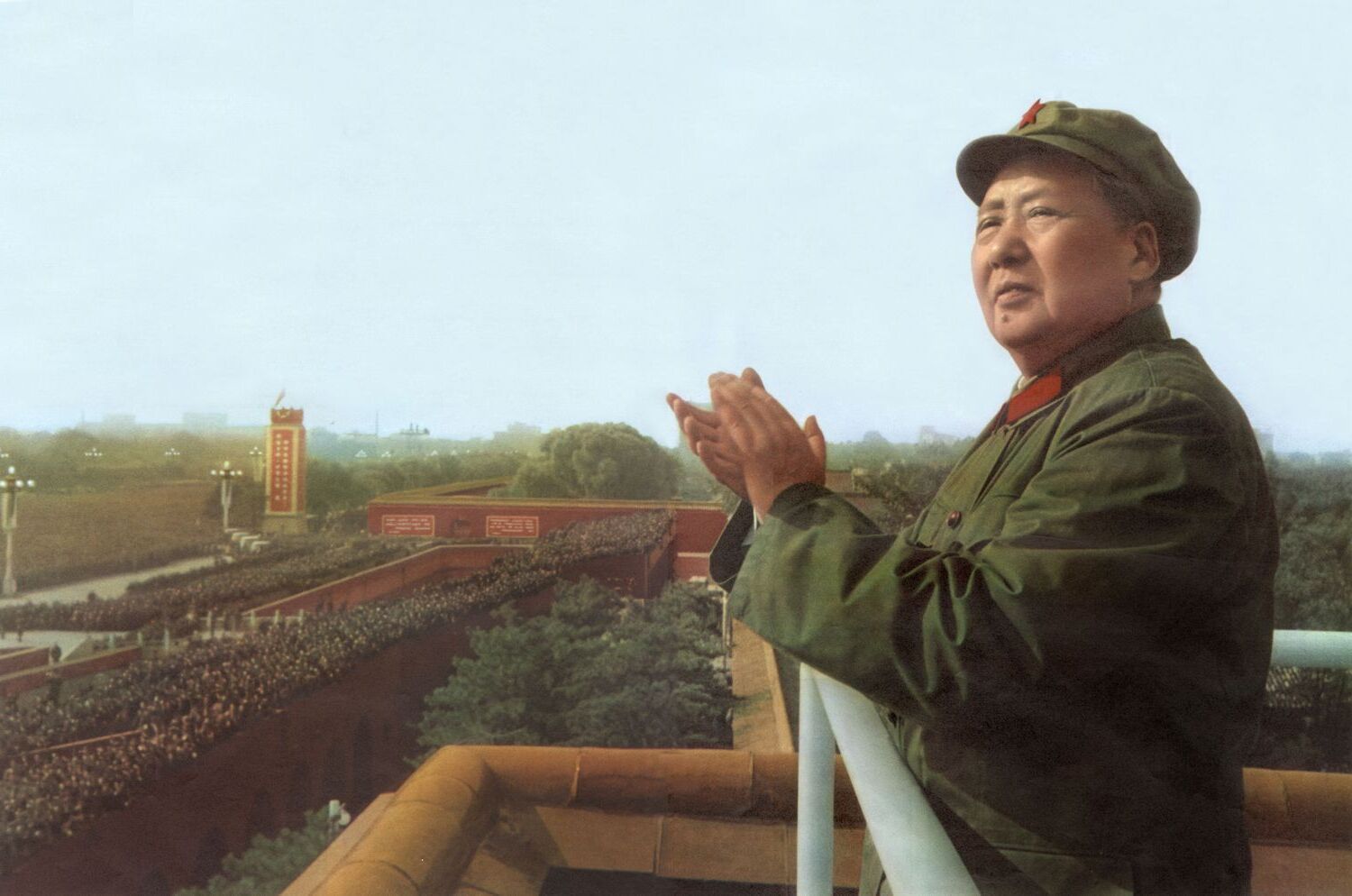
Mao Zedong, a name synonymous with China's revolutionary history, has a lineage as intriguing as his political legacy. Ever wondered about the roots of this iconic leader? Mao's ancestry stretches back to humble beginnings in Shaoshan, Hunan Province. His family, primarily peasants, lived a modest life, far removed from the grandeur of future political power. Mao's father, Mao Yichang, was a strict, hardworking farmer who instilled discipline in his children. Mao's mother, Wen Qimei, was a devout Buddhist, providing a contrasting gentle influence. This blend of sternness and spirituality shaped Mao's early years, creating a foundation for his future ideologies. Curious about more details? Let's dive into 40 fascinating facts about Mao Zedong's lineage that reveal the roots of this complex figure.
Key Takeaways:
- Mao Zedong's early life and family background greatly influenced his revolutionary ideas and leadership, shaping the course of modern China's history.
- Mao's complex personal life, marriages, and the fates of his children reflect the turbulent times in which he lived, leaving a lasting impact on his descendants and modern China.
Mao Zedong's Early Life
Mao Zedong, the founding father of the People's Republic of China, had a fascinating lineage and early life that shaped his future. Here are some intriguing facts about his beginnings.
- Born on December 26, 1893, in Shaoshan, Hunan Province, Mao came from a peasant family.
- His father, Mao Yichang, was a prosperous farmer who owned land and livestock.
- Mao's mother, Wen Qimei, was a devout Buddhist who influenced his early beliefs.
- He had two brothers, Mao Zemin and Mao Zetan, both of whom played roles in the Communist Party.
- Mao's family lived in a traditional Chinese farmhouse, which is now a museum.
Education and Early Influences
Mao's education and early influences were pivotal in shaping his revolutionary ideas. Let's delve into some key aspects of his formative years.
- Mao attended a local primary school where he learned basic Confucian texts.
- He later enrolled in a modern school in Changsha, the capital of Hunan Province.
- During his time in Changsha, Mao was exposed to Western ideas and revolutionary literature.
- He was particularly influenced by the works of Karl Marx and Friedrich Engels.
- Mao also read extensively about Chinese history and classical literature.
Mao's Political Awakening
Mao's political awakening began during his student years, leading him to become a prominent revolutionary leader. Here are some significant milestones.
- In 1918, Mao moved to Beijing and worked as a library assistant at Peking University.
- He joined the New Culture Movement, which advocated for modernization and reform in China.
- Mao co-founded the Xiang River Review, a student publication promoting revolutionary ideas.
- He became a member of the Chinese Communist Party (CCP) in 1921.
- Mao's early political activities included organizing labor strikes and peasant movements.
Family Life and Personal Relationships
Mao's personal life was complex, with multiple marriages and relationships that influenced his political career. Here are some notable facts.
- Mao married his first wife, Luo Yixiu, in an arranged marriage when he was 14 years old.
- Luo Yixiu died shortly after their marriage, and Mao later married Yang Kaihui in 1920.
- Yang Kaihui was an intellectual and revolutionary who supported Mao's political activities.
- The couple had three children: Mao Anying, Mao Anqing, and Mao Anlong.
- Yang Kaihui was executed by the Kuomintang in 1930, leaving Mao devastated.
Mao's Children and Their Fates
Mao's children had varied and often tragic fates, reflecting the turbulent times in which they lived. Here are some key details.
- Mao Anying, his eldest son, studied in the Soviet Union and fought in the Korean War.
- Mao Anying was killed in a U.S. airstrike during the Korean War in 1950.
- Mao Anqing, his second son, also studied in the Soviet Union and later worked as a translator.
- Mao Anqing suffered from mental illness and lived a relatively quiet life.
- Mao Anlong, his youngest son, died of dysentery at a young age.
Mao's Later Marriages
Mao's later marriages were to women who played significant roles in his political life. Here are some important facts.
- Mao married He Zizhen in 1928, a fellow revolutionary and member of the CCP.
- He Zizhen and Mao had six children together, but only three survived infancy.
- The couple separated in 1937, and Mao later married Jiang Qing in 1938.
- Jiang Qing, also known as Madame Mao, was an actress and political figure.
- Jiang Qing played a prominent role during the Cultural Revolution.
Mao's Legacy and Descendants
Mao's legacy continues through his descendants, who have pursued various careers and maintained his memory. Here are some notable facts.
- Mao's grandson, Mao Xinyu, is a major general in the People's Liberation Army.
- Mao Xinyu has written several books about his grandfather's life and legacy.
- Mao's great-granddaughter, Kong Dongmei, is a successful businesswoman and author.
- Kong Dongmei has also been involved in philanthropic activities in China.
- Mao's descendants have faced both admiration and criticism due to their lineage.
Mao's Impact on Modern China
Mao's impact on modern China is profound, with his policies and leadership shaping the nation's history. Here are some key aspects of his influence.
- Mao's land reform policies redistributed land from landlords to peasants.
- The Great Leap Forward, initiated by Mao, aimed to rapidly industrialize China but led to widespread famine.
- Mao launched the Cultural Revolution to reassert his control, resulting in social and political upheaval.
- His ideology, known as Maoism, continues to influence communist movements worldwide.
- Mao's image and legacy remain controversial, with both praise and criticism from historians and the public.
Final Glimpse at Mao Zedong's Lineage
Mao Zedong's lineage offers a fascinating peek into the roots of one of history's most influential figures. From humble beginnings in Shaoshan to leading a revolution that reshaped China, his family background played a crucial role in shaping his worldview. His ancestors were farmers, scholars, and soldiers, each contributing to the tapestry of his life. Understanding his lineage helps us grasp the complexities behind his leadership and decisions. While some family members supported his revolutionary ideals, others faced tragic fates due to political turmoil. This blend of personal and political history provides a richer understanding of Mao's legacy. By exploring these 40 facts, we gain a deeper appreciation for the man behind the myth, seeing him not just as a leader but as a product of his lineage.
Frequently Asked Questions
Was this page helpful?
Our commitment to delivering trustworthy and engaging content is at the heart of what we do. Each fact on our site is contributed by real users like you, bringing a wealth of diverse insights and information. To ensure the highest standards of accuracy and reliability, our dedicated editors meticulously review each submission. This process guarantees that the facts we share are not only fascinating but also credible. Trust in our commitment to quality and authenticity as you explore and learn with us.


